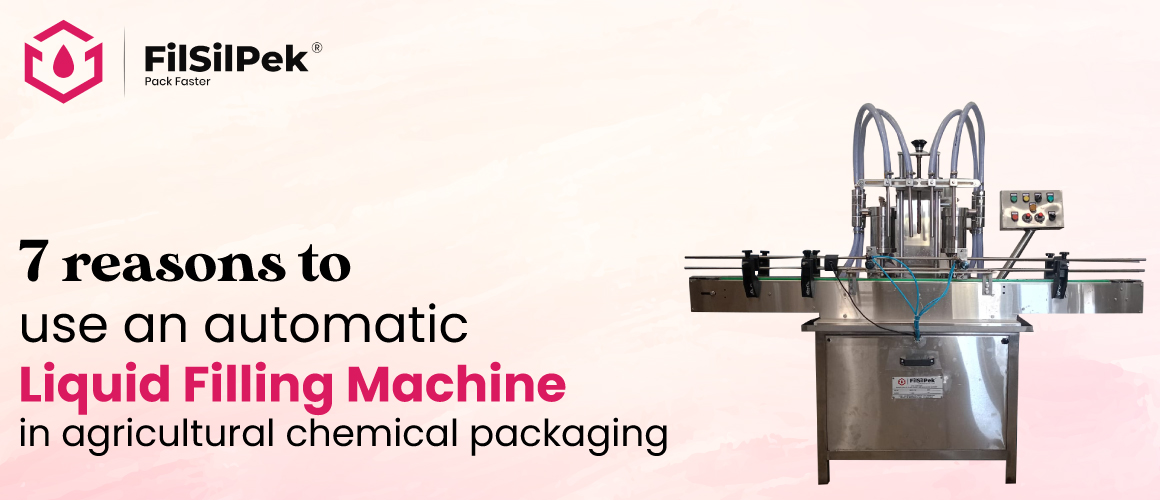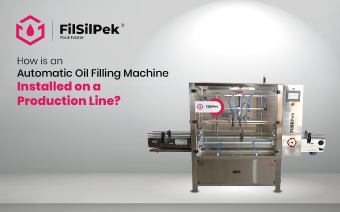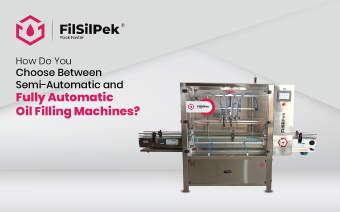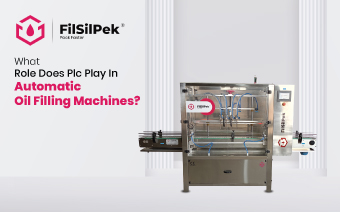7 reasons to use an automatic liquid filling machine in agricultural chemical packaging
Agricultural chemical packaging is very different from other industries. The liquids being filled—pesticides, herbicides, fungicides, and liquid fertilizers—are often corrosive, hazardous, and subject to strict compliance. A small mistake in dosing or handling can result in product rejection, safety risks, or regulatory penalties. This makes packaging not just a production task but a critical quality and safety responsibility.
Many manufacturers still use manual or semi-automatic filling systems, which cannot meet the accuracy, safety, and efficiency standards expected today. Automatic liquid filling machines provide a solution that addresses both common issues and hidden challenges in agrochemical packaging. Before we look at the top reasons to adopt them, let’s understand what makes this machinery relevant for the industry.
The unique demands of agricultural chemical packaging
Agricultural chemical packaging must withstand chemical reactions, storage challenges, and seasonal demand fluctuations. Containers need to be filled with exact volumes, sealed tightly to avoid leaks, and labeled with accuracy for compliance purposes. The diversity of products adds another layer of complexity, as liquid fertilizers, insecticides, and herbicides vary in viscosity and behavior during filling.
Automatic liquid filling machines are designed with these specific needs in mind. They combine accuracy, safety, and adaptability to ensure that every batch is consistent and every container is reliable. This capability helps manufacturers avoid losses and maintain their reputation in a competitive and regulated market.
Why automatic filling machines are essential in agrochemical packaging?
The packaging of agricultural chemicals requires more than just speed. Accuracy, safety, material compatibility, and reliability all play a part in maintaining quality and compliance. Manual or semi-automatic filling often struggles to meet these requirements, especially when dealing with corrosive liquids or varying viscosities. Automatic liquid filling machines are designed to address these exact challenges and bring additional benefits that many manufacturers often overlook.
1. Accuracy in dosing prevents compliance risks and product loss
In agrochemicals, volume accuracy is essential because farmers measure product use by volume, not weight. Even slight underfilling can create compliance issues, while overfilling wastes valuable product. Automatic filling machines use servo-driven pistons, peristaltic pumps, or mass flowmeters to achieve high accuracy within tight tolerances. This protects manufacturers from regulatory penalties and ensures consistent product quality.
2. Corrosion-resistant construction improves durability
Agricultural chemicals contain acids, alkalis, and solvents that corrode ordinary steel and seals. Over time this leads to frequent repairs, leaks, and downtime. Automatic liquid filling machines are engineered with SS316L contact parts, PTFE or Viton gaskets, and ceramic pistons that resist these harsh chemicals. The result is longer equipment life and reduced maintenance costs.
3. Safety features reduce operator exposure to hazardous chemicals
Manual filling exposes operators to chemical splashes, inhalation risks, and direct contact with toxic substances. Automatic filling machines integrate safety measures such as diving nozzles to minimize splashing, anti-drip systems to prevent leaks, and enclosed chambers with vapor extraction. Some models also feature automated cleaning-in-place (CIP), which reduces operator involvement in handling residues.
4. Flexibility for handling multi-viscosity and foamy products
No two agrochemicals behave alike during filling. Liquid fertilizers are often viscous, herbicides are thin, and some insecticides foam easily. Automatic machines allow adjustment of filling modes—gravity filling for thin liquids, piston filling for viscous products, and diving nozzles for foamy formulations. This flexibility enables manufacturers to handle multiple products on the same line without costly changeovers.
5. Batch traceability and integration with digital systems
Compliance in agrochemicals requires traceability at every step. Automatic liquid filling machines can be integrated with PLC, SCADA, or ERP systems to record fill volumes, batch codes, and operator IDs. This data supports audits, simplifies recalls, and assures distributors of consistent quality. Digital integration is a growing advantage that many manufacturers are only beginning to recognize.
6. Controlled headspace reduces leakage during transport
Overfilled containers can expand under heat or pressure during storage and transport, causing leaks, crystallization, and label damage. Automatic filling machines leave controlled headspace in each container, ensuring safe transport and reducing product loss. This is particularly important for export markets, where leakage issues can result in rejected shipments and penalties.
7. Faster changeovers to meet seasonal demand
Demand for agrochemicals is not steady throughout the year, with sharp spikes during planting and spraying cycles. Automatic liquid filling machines support fast line changeovers between different container sizes and products. With programmable filling recipes and tool-free adjustments, manufacturers can respond quickly to seasonal peaks and secure large orders without extending production time.
Long-term benefits of using automatic liquid filling machines in agrochemical packaging
Investing in an automatic liquid filling machine provides advantages that extend far beyond faster production. These machines reduce manual effort, improve the consistency of every filled unit, and minimize costly human errors. They also bring measurable savings in energy and material usage, helping manufacturers optimize resources. With better accuracy, less wastage, and enhanced safety features, they ensure compliance with industry standards while strengthening overall reliability. Over time, these benefits add up, making the equipment a sustainable choice for industries dealing with liquid packaging at scale.
- Automated filling reduces wastage of costly agrochemical formulations, ensuring better material utilization across production runs.
- Consistent fill levels maintain packaging uniformity, which strengthens product reliability and brand credibility in the market.
- Integrated cleaning cycles minimize downtime and lower maintenance frequency, improving overall production efficiency.
- Flexible machine settings allow smooth scalability when production lines expand or new product variants are introduced.
- Accurate sealing compatibility reduces leakages during storage and transport, safeguarding both product and supply chain integrity.
- Automation lowers manual handling, improving workforce safety and reducing the risk of operator exposure to hazardous chemicals.
- Built-in compliance support through digital data logging helps meet regulatory standards with accurate records and traceability.
- Energy-efficient designs optimize power use, cutting long-term operational costs without compromising productivity.
- Advanced controls minimize packaging rejections, supporting smoother export processes and reducing shipment losses.
- Durable construction and optimized component usage extend equipment life, lowering the frequency of part replacements.
Final verdict
Automatic liquid filling machines address both the obvious and hidden challenges of agricultural chemical packaging. They improve accuracy, extend equipment life, enhance operator safety, and adapt to varied formulations. They also deliver lesser-known advantages such as digital traceability and controlled headspace, which reduce risks in compliance and logistics.
For manufacturers in the agrochemical sector, this machinery is not only a tool for efficiency but also a safeguard for quality, safety, and reliability. To explore the right filling machine for your operations, connect with our experts at [email protected].
How is an Automatic Oil Filling Machine Installed on a Production Line?
Installing an automatic oil filling machine is more than just…..
How Do You Choose Between Semi-Automatic and Fully Automatic Oil Filling Machines?
Oil filling is a critical step in packaging operations across industries…..
What role does PLC play in automatic oil filling machines?
Automatic oil filling machines run many small and complex actions at the same time. Each bottle…..



